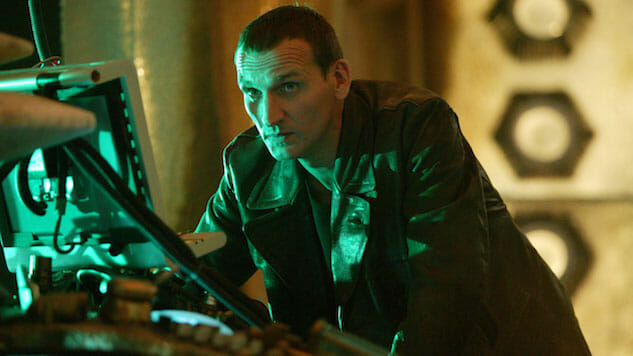How Russell T. Davies Can Help Save Doctor Who a Second Time
Photo Courtesy of BBC
Sometimes impossible things just happen, and we call them miracles. Though that line was originally spoken by the Eleventh Doctor in the Season 5 episode “The Pandorica Opens,” it might feel strangely relevant to Doctor Who fans in 2021, who are trying to process the news that everything old is indeed new again, and former showrunner Russell T. Davies is officially returning to the series he left behind back in 2009.
For those that don’t know, Davies has something of mythic status in the world of Doctor Who. Truly, it’s hard to overstate his contributions to the concept of what a modern-day version of this show should be and do. Responsible for the show’s revival in 2005, he brought Doctor Who back from the literal dead after the 1996 Paul McGann TV film flopped so badly it kept the entire franchise off the air for nearly a decade. He, along with former Doctors Christopher Eccleston and David Tennant, helped define the character and the franchise for an entirely new generation of fans. He broke ratings records. And, he’s a big part of the reason the show is the global powerhouse it is today. Now, Davies is apparently returning to help shape its next decade.
Davies will return to helm a Doctor Who that looks quite different than the one he left. Gone are the dodgy props and shoestring budgets—this is now a show with episodes that now often look and feel like feature films. After years of complaints and dodging questions about the issue, a woman is playing the Doctor. The show is tackling more contemporary and social issues than ever before. It’s literally a whole new world. But it’s still one that Davies is uniquely suited to tackle.
Because his Doctor Who was never about the aliens, the time travel, or the mystery box plots that the showrunners after him embraced—those things were never the point. Davies’ show was always much more focused on characters and relationships, grounding the Daleks and the outlandish science fiction plots in down-to-earth characters and human stakes. For all that his first season ended with the Doctor facing off with his oldest and most dangerous adversary, its emotional weight came from Rose’s journey, her determination to get back to and fight beside Nine, and the catharsis of the revelation that she was the Bad Wolf all along.
Davies always understood that people, like stories, are made up of a pile of good and bad things (to crib another line from Eleven). His Doctors, their companions, and the many supporting characters he introduced were never purely black or white, but creatures that existed somewhere in the middle, which is what helped make them all feel so rich and relatable. He made you care about his characters in a way that subsequent showrunners either weren’t terribly interested in or couldn’t manage.
-

-

-

-

-

-

-

-

-

-

-

-

-

-

-

-

-

-

-

-

-

-

-

-

-

-

-

-

-

-

-

-

-

-

-

-

-

-

-

-








































